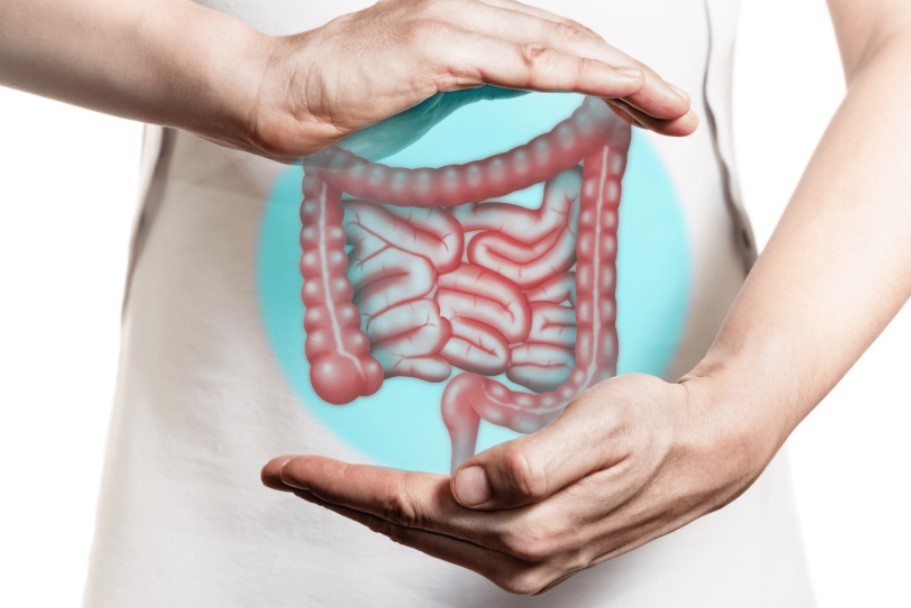
Gastroenterology, the most common intestinal disorders
Intestinal disorders: diarrhoea, constipation (constipation), constant bellyache, flank pain are some of the symptoms that can manifest an intestinal disorder
These are common problems, which are associated with various factors such as an unbalanced diet, treatment with certain medications, stress and certain diseases.
Knowing how to recognise these symptoms and, if they occur, promptly referring them to a gastroenterologist specialist, can help resolve disorders that, if left untreated, can have consequences on one’s health and quality of life.
Lactose intolerance, what are the symptoms?
Occasional episodes of diarrhoea should not cause concern, especially if they resolve spontaneously after one or two events, but when diarrhoea always occurs after consuming milk, fresh cheese, ice cream or cream, it could be a sign of lactose intolerance, which is more likely if symptoms such as abdominal pain and bloating or flatulence also occur.
This problem affects around 50 per cent of the Italian population and is linked to a deficiency of lactase, the enzyme by which the body breaks down lactose in order for it to be digested.
Lactose intolerance can be primary (rare), i.e. of genetic origin and affecting patients as early as paediatric age, or secondary (common) and occur later in life, due to lactase depletion as a result of infectious or inflammatory diseases, therapies (antibiotics, chemotherapy, radiotherapy) but also advancing age.
The diagnosis is made using the Breath test, a test carried out on samples of air exhaled after consumption of lactose.
In the event of a positive result, dietary habits must be changed, for example by eliminating cow’s milk and replacing it with lactose-free or vegetable milk.
Bowel problems, causes of constipation
Those who suffer from constipation (constipation), on the other hand, experience difficulty evacuating, a feeling of incomplete evacuation, which occurs less frequently than normal, and stools of a hard consistency.
Those affected by constipation tend to evacuate less than three times a week.
It is a condition that affects about 15% of the Italian population and, above all, the female sex.
Constipation is often due to insufficient fibre and fluid consumption, which give stools the right consistency to pass through the intestine and be expelled easily.
Sedentary lifestyle also plays a role: activity stimulates intestinal motility.
Other causes of constipation, however, can be
- intestinal diseases (such as irritable bowel syndrome and colorectal cancer);
- neurological diseases (such as Parkinson’s disease);
- lack of coordination of the pelvic muscles during defecation;
- diabetes;
- hypothyroidism;
- taking certain drugs.
If, therefore, constipation does not resolve with a change in diet and lifestyle and the typical symptoms are associated with other manifestations (such as blood in the stool, anaemia, abdominal pain, weight loss), in addition to a gastroenterological examination with rectal exploration, further diagnostic tests may be necessary to rule out the presence of more severe pathologies.
The symptoms of irritable bowel
Alternating constipation and diarrhoea combined with recurrent abdominal pain and bloating may be signs of irritable bowel syndrome.
This is a disorder of the brain-intestine axis, formerly known as functional bowel disorder, which affects 2 out of every 10 people, predominantly females, with a chronic-recurrent pattern, exacerbated by particularly stressful events on a physical (surgery, illness, etc.) and psychological (separation, bereavement, etc.) level.
In addition to intestinal symptoms, irritable bowel sufferers may also experience extra-intestinal symptoms, which include
- migraine
- irritability
- difficulty concentrating
Usually, as far as the treatment of irritable bowel is concerned, if constipation prevails, one can resort to supplements based on soluble fibres (e.g. psyllium), which increase the water content in the faeces, accelerating its transit, and osmotic laxatives (such as Macrogol).
When diarrhoea prevails, probiotics, which help restore the intestinal microbiota and its functions, and non-absorbable antibiotics such as rifaximin, to reduce intestinal fermentation and/or if bacterial contamination is suspected, may be helpful.
In any case, however, it is advisable to modify those dietary or lifestyle behaviours that may favour the onset of symptoms, thus favouring a balanced diet, adequate hydration and an active lifestyle.
Diverticulitis, what it is and how to prevent it
Diverticula are extroversions, with the appearance of small pockets, that form in areas of lower resistance of the intestinal wall.
The presence of asymptomatic diverticula is called diverticulosis and is present in more than 50% of people over 60.
The presence of abdominal pain, bloating and altered bowel regularity could be an expression of uncomplicated diverticular disease.
Diverticulitis, on the other hand, is caused by inflammation of the diverticula and is characterised by more intense and prolonged symptoms and altered blood tests.
To prevent the development of diverticulitis, it is advisable to
- exercise regularly;
- eat an adequate diet that includes the consumption of at least 20 grams of fibre per day;
- drink plenty of water;
- have regular bowel function.
Read Also
Emergency Live Even More…Live: Download The New Free App Of Your Newspaper For IOS And Android
Endoscopic Polypectomy: What It Is, When It Is Performed
Juvenile Gastrointestinal Polyposis: Causes, Symptoms, Diagnosis, Therapy
Intestinal Polyps: Diagnosis And Types
Differences Between Mechanical And Paralytic Ileus: Causes, Symptoms And Treatment
Short Bowel Syndrome: Causes, Therapy, Diet
Vomiting Blood: Haemorrhaging Of The Upper Gastrointestinal Tract
Pinworms Infestation: How To Treat A Paediatric Patient With Enterobiasis (Oxyuriasis)
Intestinal Infections: How Is Dientamoeba Fragilis Infection Contracted?
Gastrointestinal Disorders Caused By NSAIDs: What They Are, What Problems They Cause
Gastroenterology: Intestinal Polyps And Polyposis In Paediatrics


